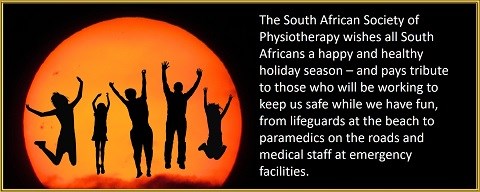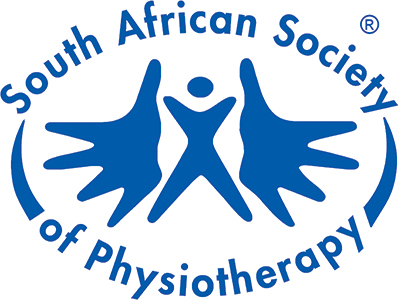
Here we are again, just longing for that perfect holiday. It’s been a tough year for everyone, and we can’t wait to get back home to see our families, or to the beach or mountains to chill.
“There’s a strong emphasis on road safety during December, and that’s as it should be,” says Dr Ina Diener, deputy president of the South African Society of Physiotherapy (SASP). “Statistics show that road deaths have been increasing every year since 2013 – in 2016, 14,071 people died on our roads, according to the Automobile Association, an increase of 9% over the previous year. This is a very worrying trend.”
That 9% means about 1,120 more people were killed – drivers, passengers, cyclists and pedestrians. But looking only at the fatalities ignores another massive toll on the country. “As physiotherapists, we focus, not just on the deaths, but also on the injury rate. The incidence of serious injuries is more than twice that of deaths, injuries that need rehabilitation and may change people’s lives forever,” says Dr Diener. “So as physiotherapists, we urge people to do the right things on the road, to obey the speed laws and take safety precautions.”
But in addition, she says, people should be aware that when they’re on holiday, out of their normal routine, there’s a real risk of injury which might be even higher than usual due to relaxed vigilance. “We don’t want you to find yourself in the emergency room while on holiday, or start the year with rehab for an injury!” she says.
Some tips for avoiding holiday injuries:
• Take appropriate medical precautions. Get malaria prophylaxis if you might be exposed; get any other vaccinations you may need. Take a decent first aid kit with you.
• Get enough sleep – the sleepy driver is at risk, but so is the sleepy hiker, swimmer or bungee jumper. Inadequate rest leads to poor judgement and poor decision-making.
• Wear activity-appropriate protective gear. If you are cycling or skateboarding, don’t go without your helmet and things like knee guards. Wear tough gear when motor-cycling to protect your limbs. Use sunscreen when swimming and long sleeves and a hat when hiking.
• Think fire safety in a strange environment. Are you using paraffin lamps in a hiking hut or rural home? Make sure they’re out properly before you go to sleep. Don’t leave braai fires to burn out, smother them with sand or water.
• Be safe while being festive. Got a tree to decorate? Use a step ladder instead of balancing on a chair. Don’t do the firework thing at home, rather go to a professional event (many of the metros will have a fireworks display at New Year which is safe and much more spectacular than anything you can do yourself).
• Make sure your companion animals are safe over New Year, whether they’re left in kennels or with you on your holiday. Many animals are terrified by fireworks; they may not only injure themselves in a panic, but also accidentally cause injury to their human friends.
• Wash your hands. Places where many people congregate to enjoy themselves, from beaches to concerts, are also full of bacteria and viruses. Try to prevent infection.
• Festive events mean gifts and toys and tiny novelties spilling out of crackers. Watch your kids to prevent choking.
• Have a festive drink by all means, but do so in a safe environment, where you don’t have to drive or negotiate tricky stairs or rocky paths. And remember, drinking to excess means punishment in the morning – that’s hardly festive!
“The South African Society of Physiotherapy wishes all South Africans a happy and healthy holiday season – and pays tribute to those who will be working to keep us safe while we have fun, from lifeguards at the beach to paramedics on the roads and medical staff at emergency facilities,” says Dr Diener.









